The first thunder festival of the year, also known as Cham Phtrong Tet, is an important and unique traditional ceremony of the O Du ethnic group, one of the five smallest ethnic groups in Vietnam.
On June 27, the Ministry of Culture, Sports and Tourism issued Decision No. 2192/QD-BVHTTDL on recognizing the "New Year's Thunder Ceremony of the O Du ethnic group in Nga My commune, Nghe An province" as a National Intangible Cultural Heritage, belonging to the category of Social Customs and Beliefs.
The first thunder ceremony of the year has existed for about 100 years. It is a large and important festival with many rituals imbued with unique cultural nuances and characteristics of the O Du ethnic group.
This festival is associated with the worship of the Thunder God, the supreme god in the minds of the O Du people, with profound spiritual significance, marking the beginning of the new year according to the O Du people's concept, when the first thunder sounds (usually around February to April of the solar calendar).
For the O Du people, whenever there is thunder, it is the time to enter the new year. At this time, the O Du people will hold a thunder welcoming ceremony to pray for peace in the village, favorable weather, bountiful crops, and good health for everyone.
This is also an occasion for the O Du people to send their wishes to their ancestors and the Thunder God, and to wash away the bad luck of the old year to welcome the new year with the hope of luck and prosperity. The festival also shows community cohesion, as descendants far from home often try to return to join in.
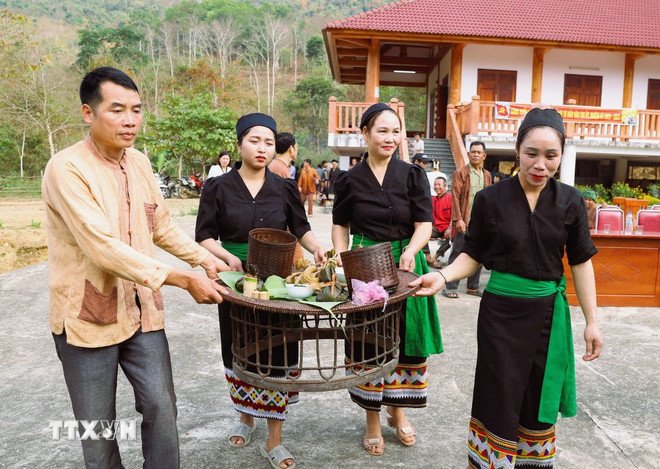
After hearing the first thunder of the year, the next morning, the shaman (the master of ceremonies) goes around the village, beating gongs to announce and call on everyone to prepare for Tet.
Villagers quickly bring household items such as pots, pans, knives, and baskets to Nam Ngan stream to wash them, with the meaning of washing away the bad luck and sadness of the old year. Women often wash them with chicken eggs to pray for fertility and growth.
The first ritual is to ask the local gods for permission to organize the festival. The offering tray includes boiled chicken, sticky rice, and white wine. The shaman is the master of ceremonies who reads prayers to inform and ask the local gods for permission to organize the Tet holiday.
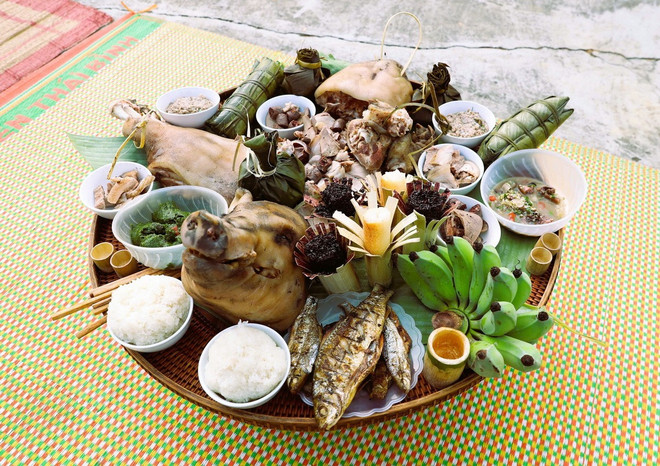
After the village worship ceremony, the villagers worship the Thunder God, their ancestors and make offerings to the villagers. Two trays of offerings are prepared with traditional dishes from the mountains and forests such as: boiled pig's head, grilled stream fish, purple sticky rice, wine in bamboo tubes, moss, banana bunches and many other traditional dishes. The shaman prays to the gods and ancestors to bless the village with peace, good crops and good health for everyone.
After the ceremony, the villagers and visitors participate in fun activities, singing and dancing. The O Du people perform traditional dances, knock bamboo tubes on the ground to create a sound symbolizing thunder or use sharp sticks to poke the ground, symbolizing the activity of digging holes to sow seeds, praying for a productive harvest. Folk games such as walking on stilts, shooting crossbows... also contribute to the excitement of the festival.
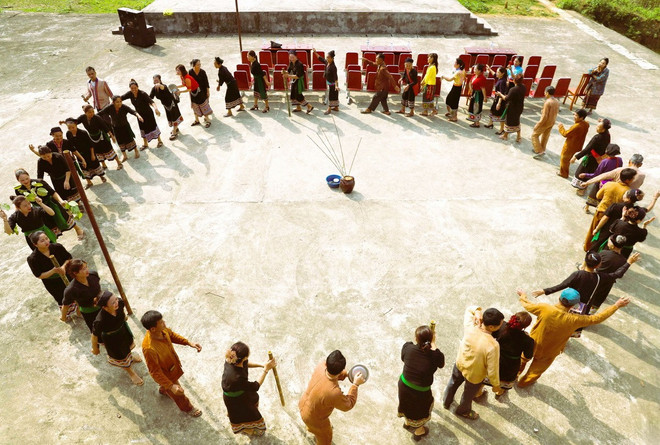
The Thunder Ceremony is one of the oldest rituals of the O Du people, passed down through many generations. This is a unique cultural feature, reflecting the agricultural life and harmony with the nature of the O Du people. The festival is not only a spiritual ritual but also a symbol of solidarity, faith in nature and ancestors.
The O Du ethnic group is one of the five smallest ethnic groups in the community of 54 ethnic groups nationally. Although many customs of the O Du people have been lost due to historical changes and migration, this festival is still preserved and restored, contributing to the preservation of cultural identity.
With its unique rituals and customs, the New Year Thunder Festival has been recognized as a National Intangible Cultural Heritage. This recognition highlights the role of the festival in preserving the cultural identity of the O Du ethnic group, while opening up the potential for community tourism development, contributing to poverty reduction and promoting local culture.
The O Du ethnic group's ceremony to welcome the first thunder of the year is also a vivid demonstration of the richness of Vietnamese ethnic culture, a bridge for the world to understand more about the culture of one of the smallest ethnic communities in Vietnam./.
Source: https://www.vietnamplus.vn/le-don-tieng-sam-dau-nam-cua-dan-toc-o-du-o-nghe-an-doc-la-nhu-the-nao-post1048200.vnp











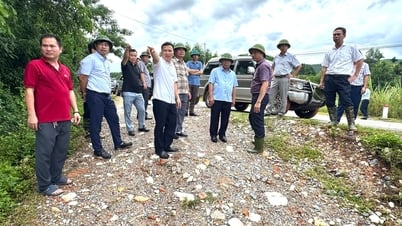

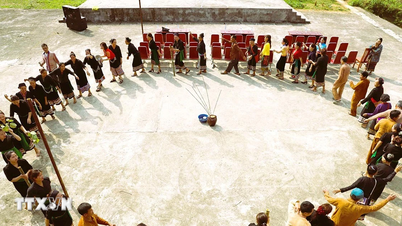
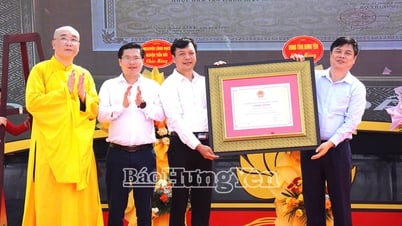



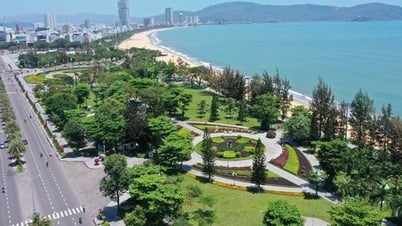

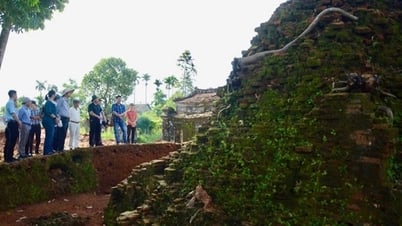

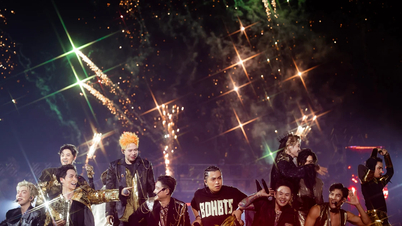







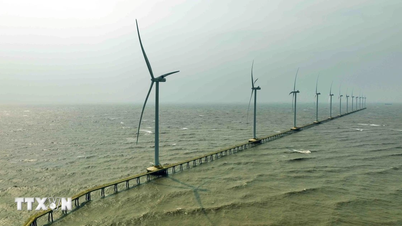
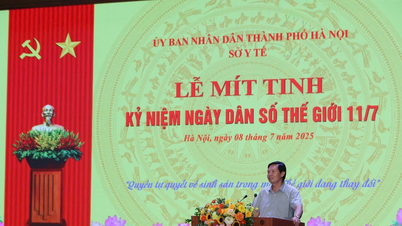

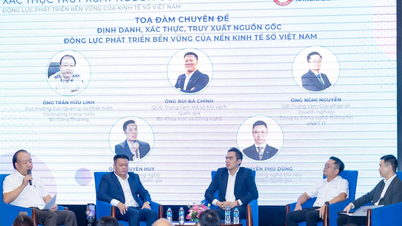




















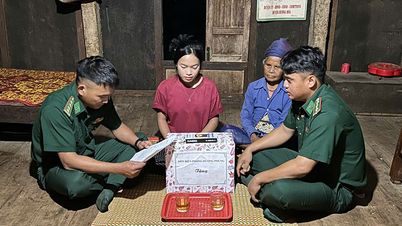
















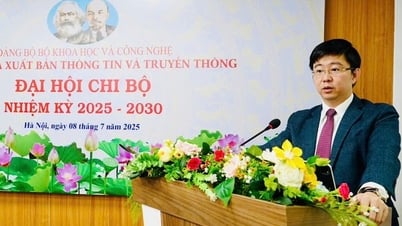

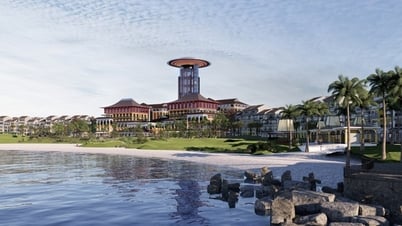
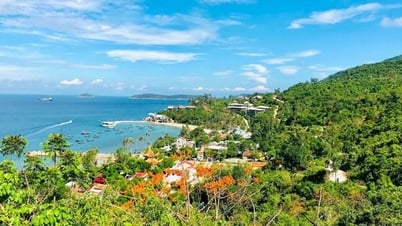
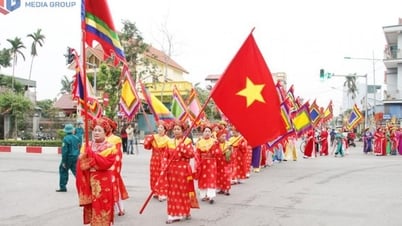
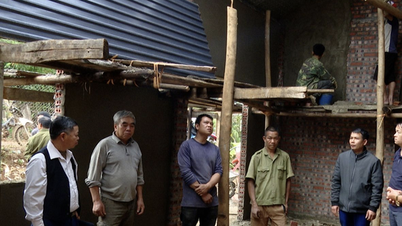
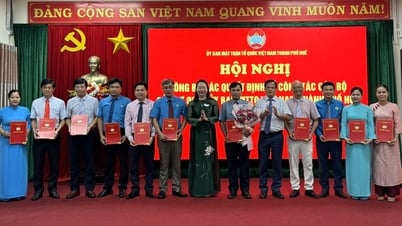

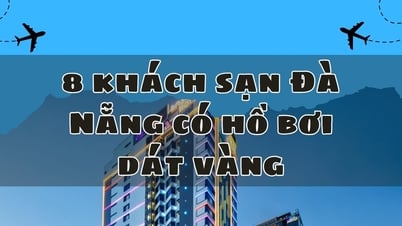

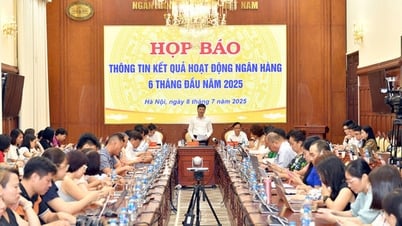

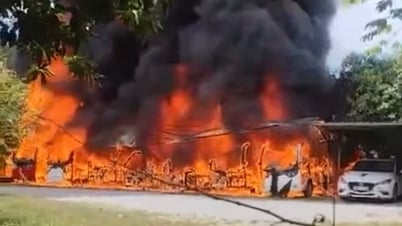

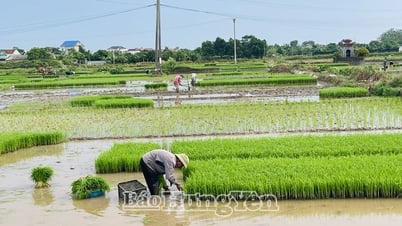










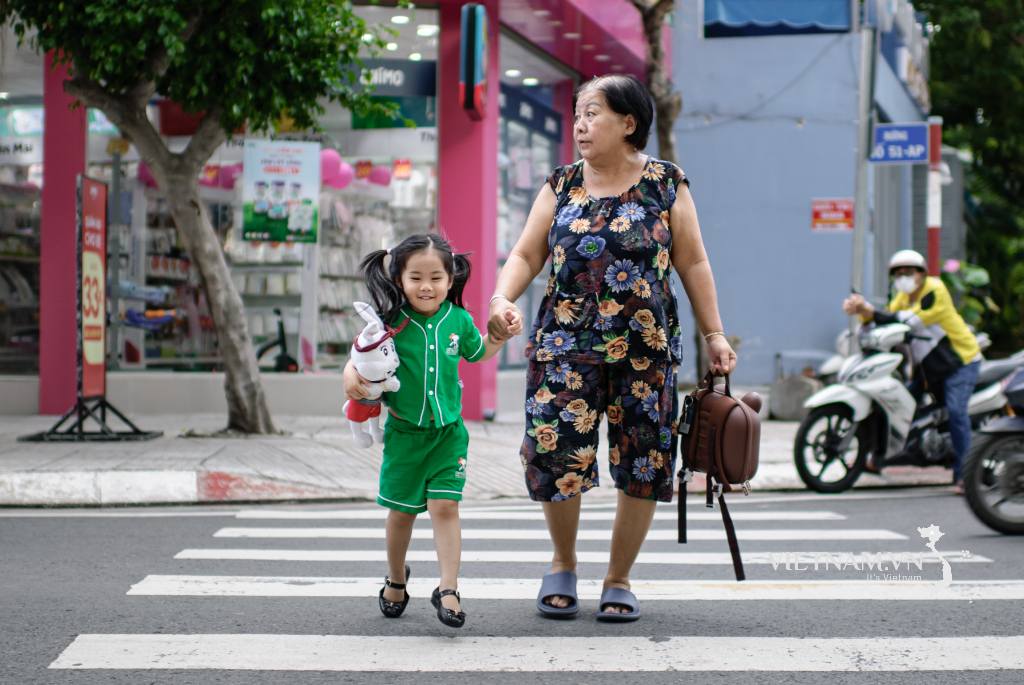
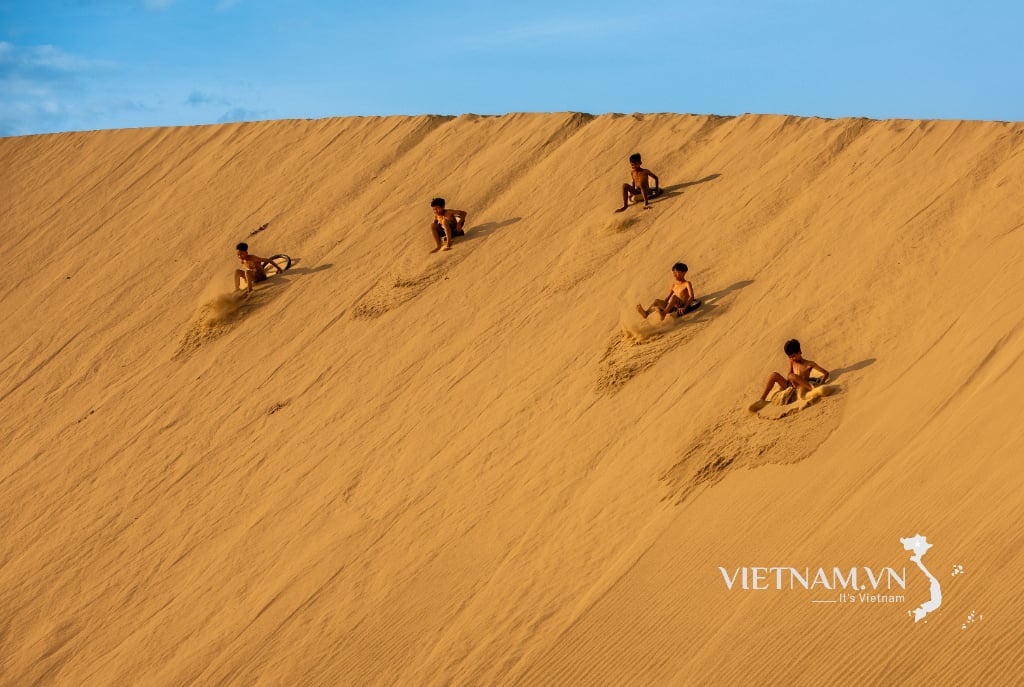
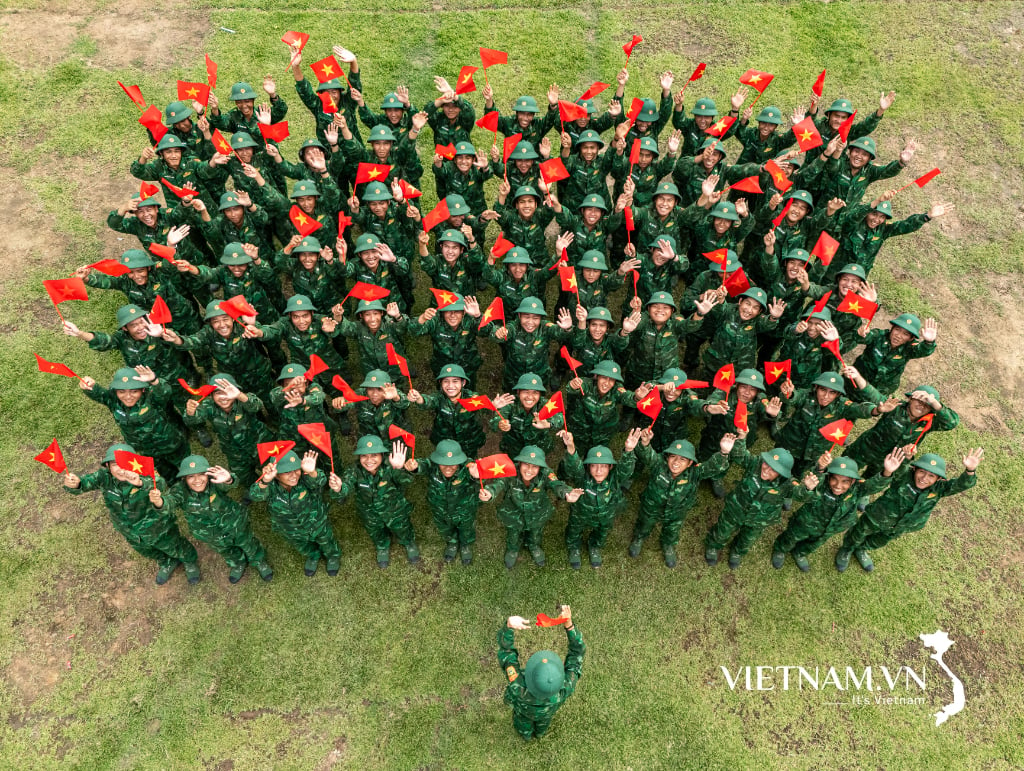

Comment (0)